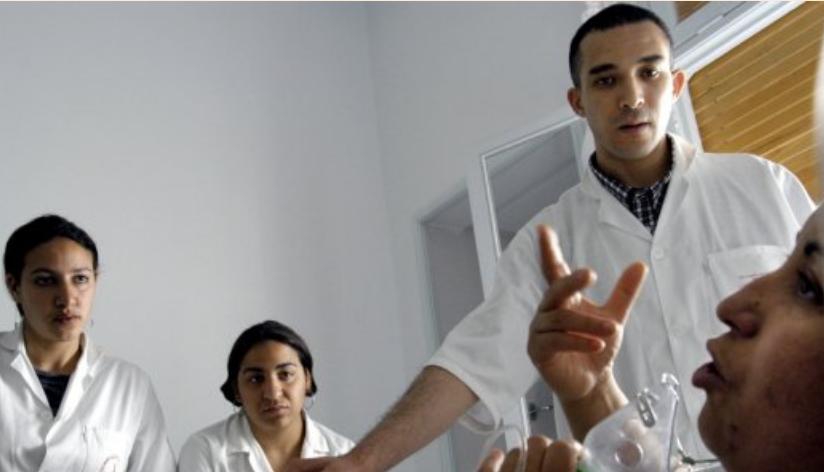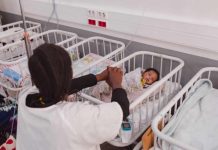Africa-Press – Botswana. Young African doctors often go abroad to complete their studies and then stay there. This has resulted in a massive brain drain during this time of Covid-19. Morocco, Tunisia, Rwanda and Senegal have put countermeasures in place.
Since its creation in 2015, the University of Global Health Equity (UGHE) – a gleaming campus located in a district of Kigali, close to large hotels, convention centres and shopping malls – has welcomed students from all over the sub-region. 70% of them are girls, thanks to a gender-sensitive recruitment policy.
The university, which is financed in particular by the Bill & Melinda Gates Foundation, has a master’s program in public health (for which recruitment was at the baccalaureate level) and provides bachelor’s degrees (post-baccalaureate) to enable young people to begin their medical studies at the establishment and then become, five to 10 years later, either general practitioners or surgeons.
Students who sit their exams in December – either in Uganda, Tanzania, Burundi or the DRC – can join the institution in their first year of higher education. The UGHE’s aim is to train health professionals on the continent from start to finish. The tendency right now is for medical students to complete their training in Europe and North America. However, the problem is that they often never come back, thus leaving their country of origin understaffed.
According to WHO, there were on average only 4.5 doctors per 10,000 inhabitants in Africa during 2012-2016. At the same time, the Mo Ibrahim Foundation says the proportion of doctors trained in Africa has increased in Western hospitals. In the US, the number grew by 27% between 2008 and 2018, which is equivalent to hiring one doctor per day – who will most likely have been trained in Egypt, Ghana, Nigeria or South Africa.
For More News And Analysis About Botswana Follow Africa-Press






